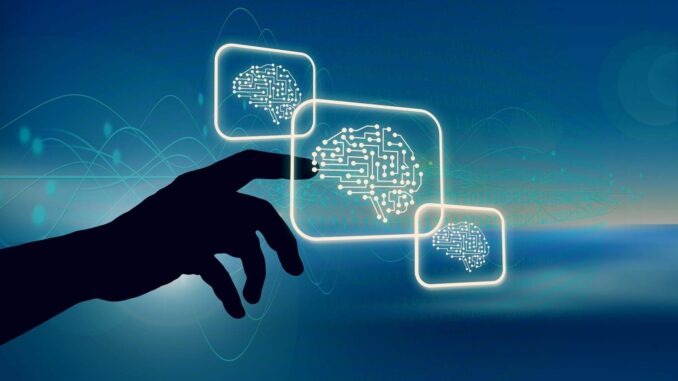
The unparalleled opportunities presented by AI research are reshaping various aspects of society, economy, and daily life. Here’s an overview of some of the most noteworthy opportunities:
### 1. **Healthcare Advancements** – **Early Detection and Diagnosis**: AI can analyze medical images (like X-rays and MRIs) and patient data to detect diseases at earlier stages, leading to better outcomes.









– **Drug Development**: AI accelerates drug discovery by predicting molecular behavior, thus reducing the time and cost associated with bringing new drugs to market.
– **Personalized Treatment Plans**: AI can analyze genetic and health data to develop tailored treatment strategies for individuals, enhancing efficacy and reducing side effects.
### 2. **Economic Growth and Productivity**
– **Automation of Routine Tasks**: AI allows businesses to automate repetitive tasks, increasing efficiency and freeing human workers to focus on more strategic activities.
– **New Business Models**: The integration of AI is creating new avenues for revenue, such as subscription services, on-demand solutions, and AI-driven analytics.
– **Enhanced Decision Making**: AI provides data-driven insights that support strategic planning and operational efficiency, driving economic growth.
### 3. **Education Transformation**
– **Adaptive Learning Technologies**: AI personalizes educational experiences, allowing students to learn at their own pace and style, increasing engagement and retention.
– **Tutoring and Support Systems**: AI-powered systems can provide real-time feedback and assistance, helping students overcome challenges promptly.
– **Administrative Efficiency**: AI can streamline administrative tasks in educational institutions, allowing educators to focus more on teaching and mentoring.
### 4. **Improved Customer Experience**
– **Personalization and Recommendation Systems**: AI analyzes customer preferences and behaviors to deliver customized product recommendations and marketing strategies.
– **24/7 Customer Support**: AI chatbots and virtual assistants offer immediate assistance, improving responsiveness and customer satisfaction.
– **Market Analysis**: AI tools can analyze market trends and consumer sentiment, enabling companies to adapt quickly to changing demands.
### 5. **Transportation Innovations**
– **Autonomous Vehicles**: AI technology drives advancements in self-driving cars, promising to improve road safety and reduce traffic congestion.
– **Supply Chain Optimization**: AI enhances logistics and supply chain management through smarter routing, demand forecasting, and inventory management.
– **Traffic Management**: AI systems can analyze real-time traffic data to optimize signal timing and reduce congestion in urban areas.
### 6. **Environmental Sustainability**
– **Smart Agriculture**: AI technologies assist farmers in optimizing crop yields through precision agriculture techniques, optimizing resource use and reducing waste.
– **Energy Management**: AI optimizes energy consumption in homes and industries, promoting energy efficiency and supporting sustainability goals.
– **Climate Modeling**: AI enhances the accuracy of climate models, providing insights that guide policy and conservation efforts.
### 7. **Security Enhancements**
– **Fraud Detection**: AI systems can identify patterns indicative of fraudulent activity, helping organizations mitigate risks in real-time.
– **Cybersecurity**: AI algorithms can detect cyber threats by analyzing network patterns, allowing for proactive defense measures.
– **Surveillance and Threat Analysis**: AI can enhance security operations by analyzing vast amounts of data and identifying potential risks quickly.
### 8. **Scientific Research Acceleration**
– **Data-Driven Discovery**: AI analyzes large datasets quickly, identifying trends and patterns that may lead to new scientific discoveries.
– **Simulation and Modeling**: AI can model complex processes in physics, chemistry, and biology, accelerating research in these disciplines.
– **Collaboration Across Disciplines**: AI fosters interdisciplinary research by providing tools that facilitate collaboration among scientists from different fields.
### 9. **Social Impact**
– **Disaster Response**: AI can analyze social media data and satellite imagery during crises to provide real-time information and optimize response efforts.
– **Public Health Tracking**: AI can monitor disease outbreaks and inform public health policies, enhancing community health management.
– **Accessibility**: AI-powered tools can improve accessibility for individuals with disabilities, fostering inclusivity and enhancing quality of life.
### 10. **Creative and Cultural Industries**
– **Content Creation**: AI tools can assist musicians, writers, and artists in generating creative content, augmenting human creativity.
– **Curation and Recommendation**: AI can analyze user preferences to curate content such as movies, music, and articles, enhancing user engagement.
– **Cultural Preservation**: AI can aid in the digitization and preservation of cultural heritage through advanced image and speech recognition technologies.
### Conclusion
The opportunities presented by AI research are indeed profound and far-reaching, with the potential to drive innovation, improve efficiency, and create substantial social benefits across multiple sectors. As AI technologies continue to evolve, stakeholders must strategically manage their development and implementation to ensure ethical considerations are prioritized, maximizing benefits while mitigating risks. This proactive approach will help in harnessing the true potential of AI for the betterment of society.

Leave a Reply